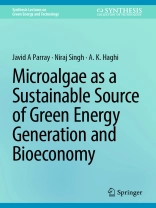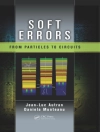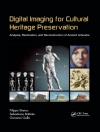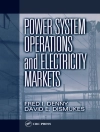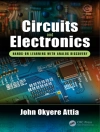The primary focus of the topic is on the production of energy. Here, energy production typically refers to the conversion of waste algal biomass into various forms of usable energy. This could include electricity, biofuels (e.g., biodiesel, bioethanol), biogas, or other forms of renewable energy. Conversion of algal biomass to fuels via extraction of lipids (and potentially other components), through ‘algal lipid upgrading’ or ALU pathway, combined algal process (CAP) and parallel algal process (PAP). ALU approach based on a biochemical processing strategy to selectively recover and convert select algal biomass components to fuels, namely carbohydrates to ethanol and lipids to a renewable diesel blendstock (RDB) product. The scope of the topic encompasses the various methods and technologies used to convert waste algal biomass into energy. This could involve processes like anaerobic digestion, fermentation, pyrolysis, hydrothermal liquefaction, or other innovative techniques. The topic may touch upon ongoing research, technological advancements, and potential areas of improvement related to waste algal biomass-based energy production.
İçerik tablosu
Introduction to Waste Algal Biomass-based Energy Production.- Algal Biology and Biomass Characteristics.- Harvesting and Preprocessing Algal Biomass.- Conversion Technologies: Overview and Principles.- Challenges and Future.
Yazar hakkında
Dr Javid A Parray holds a Master’s Degree in Environmental Science. He has completed his Research Programme (MPhil and Ph.D.) from the University of Kashmir after qualifying for the state-level prestigious JKSLET examination. He has also done his post-doctoral research at the University of Kashmir. Dr Parray was also awarded a Fast Track Young Scientist Project by SERB – DST, Go I New Delhi. He teaches at the Department of Environmental Science, GDC Eidgah Srinagar, which is affiliated with Cluswithr University Srinagar. He has attended many courses and conferences on environmental issues and other biotechnological aspects within and outside the country, such as Sri Lanka, Indonesia, Malaysia, etc. His fundamental research interests include ecological and agricultural microbiology, climate change and microbial biotechnology, environmental microbiome, etc. He has published over 50 high-impact research papers and book chapters in reputed journals and publishing Hubs. Dr. Parray has authored ten books with international publishers like Elsevier, Springer, Callisto Reference USA, and Wiley-Blackwell. Dr Parray is on the editorial board, a permanent reviewer of many journals, and an invited speaker at various scientific meetings/conferences within India and abroad. He is also a Guest editor for a special issue on Environmental Biofilms with Bio Med Research International, Hawaii. He is a member of many International and National scientific organizations and societies like the Asian PGPR Society, IJMS Mumbai, the Academy of Eco Science, IAES Haridwar, etc. Dr Javid was also awarded the “Emerging Scientist Year Gold Medal” for 2018 by the Indian Academy of Environmental Science. Dr. Parray is currently the national course coordinator for the Two (02) Ce C –Swayam Moocs program on environmental Science. Recently, Dr. Parray has been approved as a book series editor for the series titled ‘Microbiome Research in Plants and Soil’ by Elsevier. Dr. Parray is an editor for the journal Micro Environer.
Dr Niraj Singh holds a Master’s Degree in Molecular Biology and Biotechnology and has completed his Ph D in Molecular Microbiology from the Department of M.B.B.T, Tezpur University, Assam India. He has also qualified a number of National and state-level competitive exams such as CSIR-UGC JRF/NET- (AIR-106), DBT-JRF, ICAR-NET, SLET-NE, GATE in life science, and GATE in biotechnology to carry out research work in life science and related area at the Central University and research institute. After completing his Ph.D. Degree, Dr. Niraj Singh started his teaching career at the Department of Botany, North Eastern Hill University, Shillong, Meghalaya. India. He is currently working at the Department of Microbiology, The Assam Royal Global University, Guwahati, Assam as an Assistant Professor & Co-ordinator/Head. His current area of research is R. solanacearum bacterial wilt disease in plants, Virulence gene function study of R. solanacearum, and its control in agronomically important crops. He has attended many workshop courses and conferences, Faculty development program, and an M.Sc. teaching training program at the Indian Institute of Science, Bengaluru, India. He has published quality research articles, book chapters, and one book related to his work in the last few years. Dr. Niraj Singh was also awarded the Hayward- Prior Travel Award 2020 for Ralstonia solanacearum wilt research work, Young Scientist Award, Young Plant Pathologist Award, and the certificate of appreciation at Gujarat Vigyan Sammelan 2022.
Prof. A. K. Haghi Professor Emeritus of Engineering Sciences, Senior Material Engineering Consultant (UK) A. K. Haghi, Ph D, is a retired professor with over 250 academic research-oriented books as well as over 1000 research papers published in various journals and conference proceedings with over 4200 citations and h-index of 34, according to the Google Scholar database. He is currently a senior material engineering consultant in the UK. Professor Haghi has received several grants, consulted for several major corporations, and is a persistent reviewer of leading international journals. He is Founder and former Editor-in-Chief of the International Journal of Chemoinformatics and Chemical Engineering and Polymers Research Journal. Professor Haghi has acted as an editorial board member of many international journals. He has served as a member of the Canadian Research and Development Center of Sciences & Cultures and the Research Chemistry Centre, Coimbra, Portugal. He has supervised several Ph D and MSc theses at the University of Guilan (UG) and co-supervised international doctoral projects. Professor Haghi holds a BSc in urban and environmental engineering from the University of North Carolina (USA) and holds two MSc, one in mechanical engineering from North Carolina State University (USA) and another one in applied mechanics, acoustics, and materials from the Université de Technologie de Compiegne (France). He was awarded a Ph D in engineering sciences at Universite de Franche-Comte (France).
